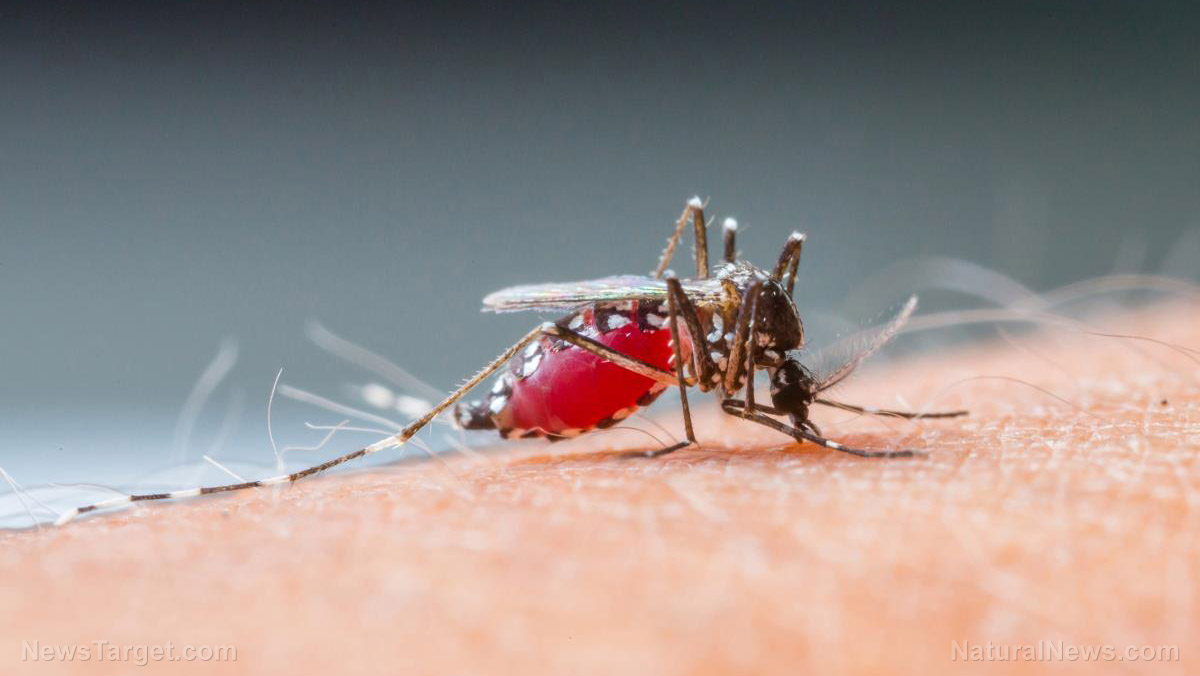Black cutch, an Asian medicinal plant, contains compounds that are effective against the dengue virus
02/23/2021 / By Evangelyn Rodriguez

Dengue is a viral infection that’s common in countries with subtropical and tropical climates. It is transmitted through the bite of a female mosquito (Aedes aegypti or A. albopictus) carrying the dengue virus (DENV). Although many cases of DENV infection involve only mild symptoms, severe dengue can be life-threatening and requires hospitalization.
According to the World Health Organization (WHO), there are four distinct, but closely related, serotypes of DENV. This means that a person can be infected by the virus as many as four times. Studies have also found that people who recover from infection by one serotype only develop partial and temporary cross-immunity to the other serotypes. Subsequent infections by other serotypes increases a person’s risk of developing severe dengue.
The Centers for Disease Control and Prevention (CDC) estimates that about 400 million people worldwide get infected with dengue each year. Of these, around 100 million get sick from infection and almost a quarter of them die from severe dengue. The WHO also notes that the global incidence of dengue has grown dramatically over the past decades, with nearly half of the world’s population now at risk. But despite recent advancements in antiviral research, there is still no approved drug for the prevention or treatment of dengue.
In countries where dengue is prevalent, different medicinal plants are traditionally used to treat dengue symptoms. These natural remedies have attracted significant attention in recent years because of their potent antiviral properties. Unlike synthetic drug candidates that are currently undergoing trials, the antiviral compounds in these plants show no toxicity and have a relatively low risk for resistance development.

In a recent study, researchers from Thailand isolated bioactive compounds from Thai medicinal plants and screened them for antiviral activity against the DENV. A wide range of plant compounds from traditional Asian and African medicines have recently been discovered to have inhibitory effects against viral infection and replication. The researchers discussed their findings in an article published in the journal Chemical Biology & Drug Design.
Acacia catechu contains potent anti-dengue compounds
Food- and plant-derived bioactive proteins and peptides have therapeutic properties that researchers are looking to exploit for the development of new and more effective antiviral drugs. Several studies have found that traditional medicines, especially those commonly prepared by water extraction and used to make tea or food supplements, are excellent sources of these bioactive components. (Related: Medicinal plants: Potent antiviral herbs to add to your diet.)
For their experiment, the researchers selected 33 Thai medicinal plants and isolated novel bioactive peptides from their enzymatic digests. They reported that two peptides obtained from Acacia catechu (black cutch) extract displayed the strongest anti-DENV activity in vitro. A deciduous tree that grows in the dry open forests of western Thailand, black cutch is valued for the tannin that can be extracted from its heartwood.
According to studies, the heartwood of black cutch is a rich source of catechins and epicatechins, which are known to exhibit potent antiviral activities. Extracts derived from this plant have also shown other beneficial properties, such as antioxidant, anti-inflammatory, antineoplastic, analgesic, antihyperglycemic, antidiarrheal and antipyretic activities, making black cutch a promising alternative medicine for a wide variety of ailments.
The researchers reported that the black cutch extract from which the two peptides were obtained effectively inhibited DENV foci formation — an event indicative of host cell infection — with an IC50 (half maximal inhibitory concentration) of 0.18 microgram (mcg)/milliliter (mL). Treatment with the crude extract (1.25 mcg/mL) also reduced virus replication with no observable cell toxicity in vitro.
The researchers then separated and analyzed the peptides present in the black cutch extract using high?performance liquid chromatography (HPLC) and tandem liquid chromatography and mass spectrometry. Two of the bioactive peptides they isolated inhibited DENV foci formation by more than 90 percent at a concentration of 50 microMolar.
Based on these findings, the researchers concluded that black cutch is a great source of promising antiviral peptides against dengue that need to be further investigated.
Sources include:
Tagged Under: alternative medicine, antiviral, black cutch, dengue virus, disease treatment, infection, natural cures, natural medicine, phytonutrients, plant medicine, prevention, remedies, research




















